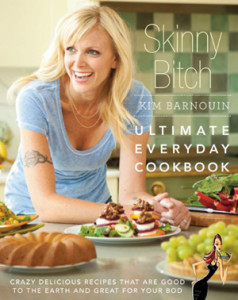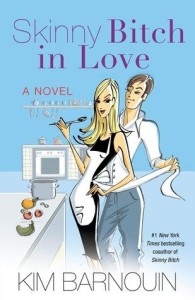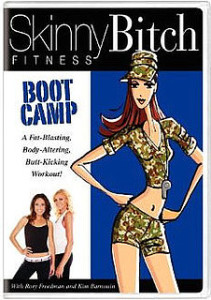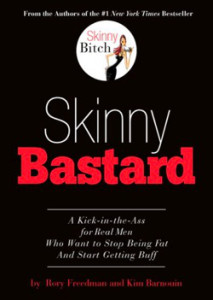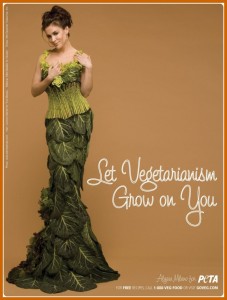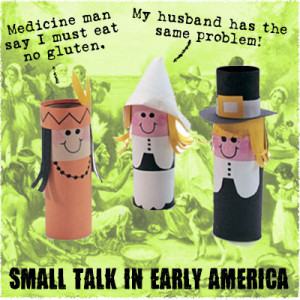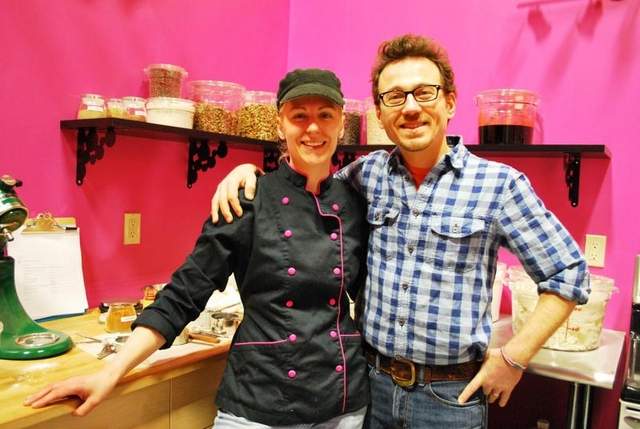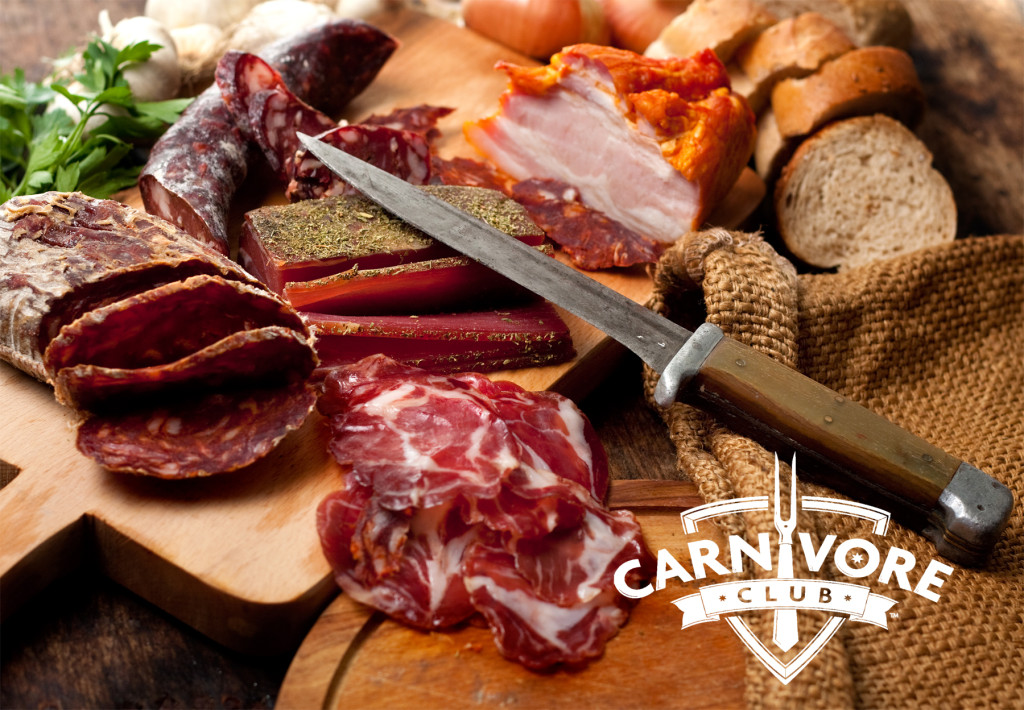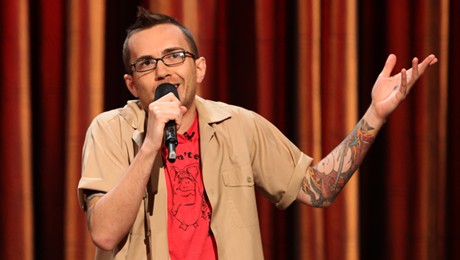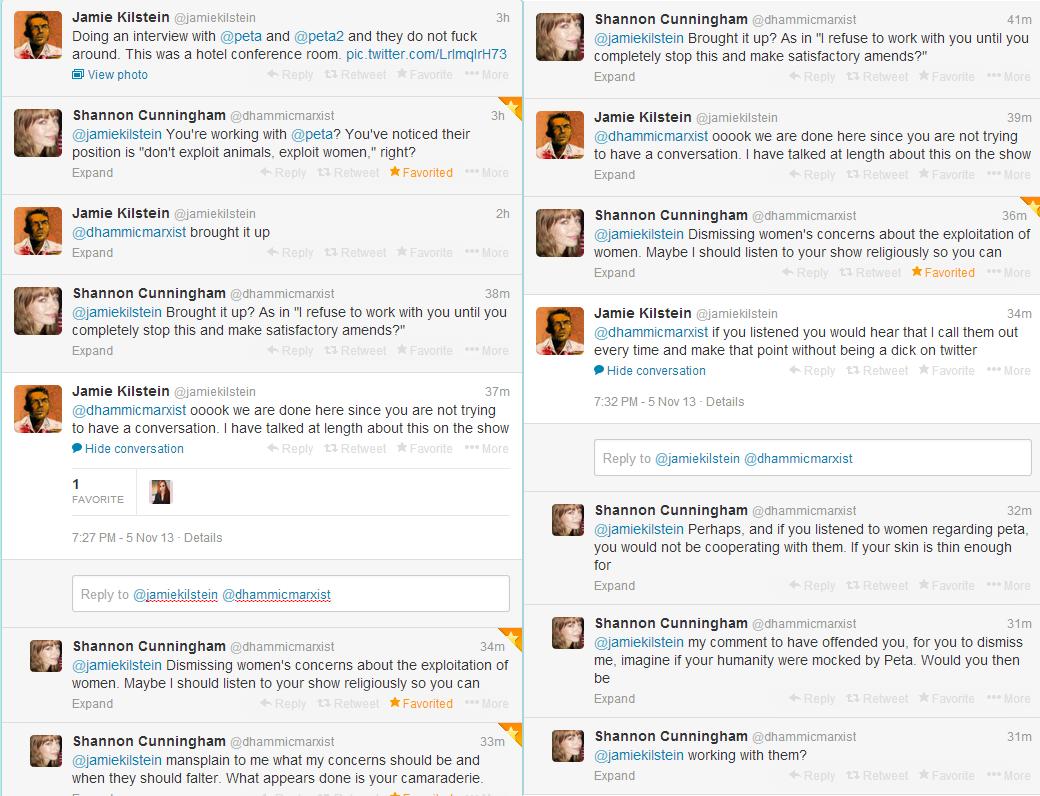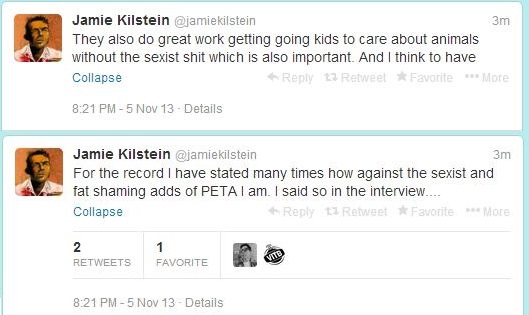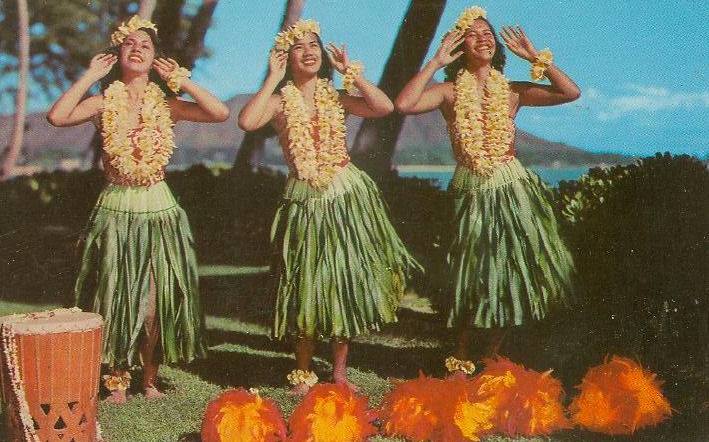Carol Adams has written extensively on the sexual politics of meat, arguing that women and other animals are both sexualized and commodified to facilitate their consumption (both figuratively and literally) by those in power. One result has been the feminization of veganism and vegetarianism. This has the effect of delegitimizing, devaluing, and defanging veganism as a social movement.
But I argue that this process works within the vegan movement as well, with an open embracing of veganism as inherently feminized and sexualized. This works to undermine a movement (that is comprised mostly of women) and repackage it for a patriarchal society. Instead of strong, political collective of women, we have yet another demographic of sexually available individual women who exist for male consumption.
Take a browse through vegan cookbooks on Amazon, and the theme of “sexy veganism” that emerges is unmistakable.
Oftentimes, veganism is presented as a means of achieving idealized body types. These books are mostly geared to a female audience, as society values women primarily as sexual resources for men and women have internalized these gender norms. Many of these books bank on the power of thin privilege, sizism, and stereotypes about female competition for male attention to shame women into purchasing.
To reach a male audience, authors have to draw on a notion of “authentic masculinity” to make a highly feminized concept palatable to a patriarchal society where all that is feminine is scorned. Some have referred to this trend as “heganism.” The idea is to protect male superiority by unnecessarily gendering veganism into veganism for girls and veganism for boys. For the boys, we have to appeal to “real” manhood.
Thankfully Meat Is For Pussies (A How-to Guide for Dudes Who Want to Get Fit, Kick Ass and Take Names) appears to be out of print.
Then there is the popular tactic of turning women into consumable objects in the exact same way that meat industries do. Animal rights groups recruit “lettuce ladies” or “cabbage chicks” dressed as vegetables to interact with the public. PETA routinely has nude women pose in and among vegetables to convey the idea that women are sexy food. Vegan pinup sites and strip joints also feed into this notion. Essentially, it is the co-optation and erosion of a women’s movement. Instead of empowering women on behalf of animals, these approaches disempower women on behalf of men.
 Dr. Wrenn is Lecturer of Sociology. She received her Ph.D. in Sociology with Colorado State University in 2016. She received her M.S. in Sociology in 2008 and her B.A. in Political Science in 2005, both from Virginia Tech. She was awarded Exemplary Diversity Scholar, 2016 by the University of Michigan’s National Center for Institutional Diversity. She served as council member with the American Sociological Association’s Animals & Society section (2013-2016) and was elected Chair in 2018. She serves as Book Review Editor to Society & Animals and has contributed to the Human-Animal Studies Images and Cinema blogs for the Animals and Society Institute. She has been published in several peer-reviewed academic journals including the Journal of Gender Studies, Feminist Media Studies, Disability & Society, Food, Culture & Society, and Society & Animals. In July 2013, she founded the Vegan Feminist Network, an academic-activist project engaging intersectional social justice praxis. She is the author of A Rational Approach to Animal Rights: Extensions in Abolitionist Theory (Palgrave MacMillan 2016).
Dr. Wrenn is Lecturer of Sociology. She received her Ph.D. in Sociology with Colorado State University in 2016. She received her M.S. in Sociology in 2008 and her B.A. in Political Science in 2005, both from Virginia Tech. She was awarded Exemplary Diversity Scholar, 2016 by the University of Michigan’s National Center for Institutional Diversity. She served as council member with the American Sociological Association’s Animals & Society section (2013-2016) and was elected Chair in 2018. She serves as Book Review Editor to Society & Animals and has contributed to the Human-Animal Studies Images and Cinema blogs for the Animals and Society Institute. She has been published in several peer-reviewed academic journals including the Journal of Gender Studies, Feminist Media Studies, Disability & Society, Food, Culture & Society, and Society & Animals. In July 2013, she founded the Vegan Feminist Network, an academic-activist project engaging intersectional social justice praxis. She is the author of A Rational Approach to Animal Rights: Extensions in Abolitionist Theory (Palgrave MacMillan 2016).
Receive research updates straight to your inbox by subscribing to my newsletter.



